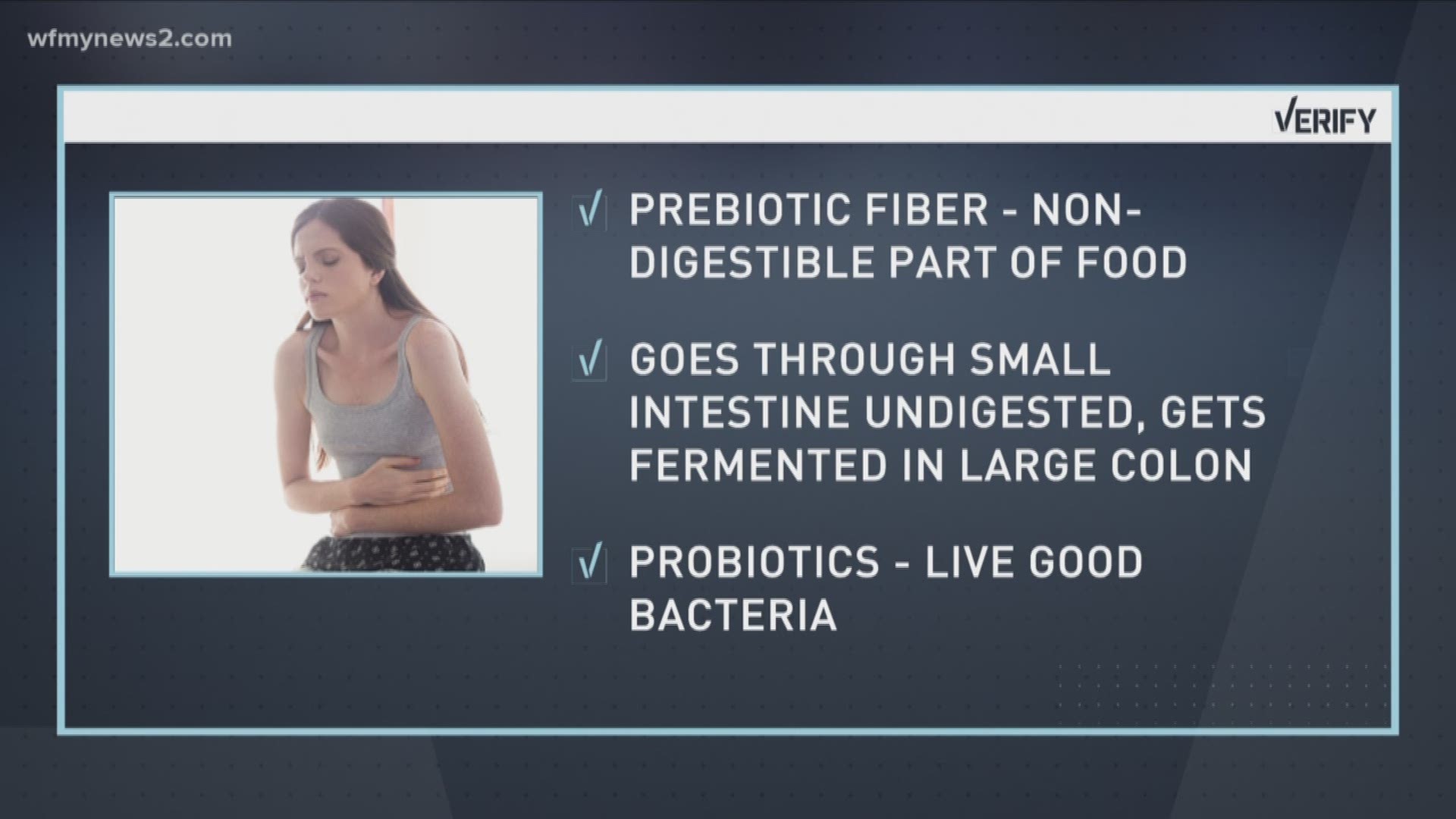VERIFY QUESTION
Do you have tummy aches or indigestion? We help you get your gut running smoothly.
Last week, we verified the benefits of probiotics, which have become a $37 billion business in the health industry. Probiotics are good bacteria, consumed via supplements or foods. They can treat some illnesses, but there is not enough proof to show they improve overall health.
After running this story, we received a VERIFY follow-up inquiry. Phillip Simon tweeted, "I would like to see a VERIFY on prebiotics and how they help with probiotics, if you can. Thanks!"
VERIFY SOURCE
- Prebiotin
- Katie Jordanhazy - registered dietitian, Novant Health
VERIFY PROCESS
Jordanhazy explained prebiotics and probiotics are used interchangeably but are very different. Both help make sure the good and bad bacteria are in the right balance. They help with GI issues, like gas and bloating. What makes them different is that prebiotics are food for probiotics.
The Prebiotin website explains prebiotic fiber is a non-digestible part of the food, like an apple skin. It goes through the small intestine undigested and gets fermented in the large colon. That fermentation process feeds the bacteria colonies, including probiotics. Probiotics are live good bacteria that get created in fermentation.
Jordanhazy says examples of prebiotic foods include fruits, vegetables and whole grains. Probiotics are yogurt, aged cheeses, fermented kimchi, sauerkraut and others. Both prebiotics and probiotics come in pill supplements, as well. When eaten together, Jordanhazy affirms, they can promote gut health and thus promote overall health.
VERIFY CONCLUSION
In conclusion, yes, prebiotics can help probiotics improve gut health and digestion. If you have a healthy, balanced diet, your body's natural prebiotics and probiotics should keep your gut healthy.

